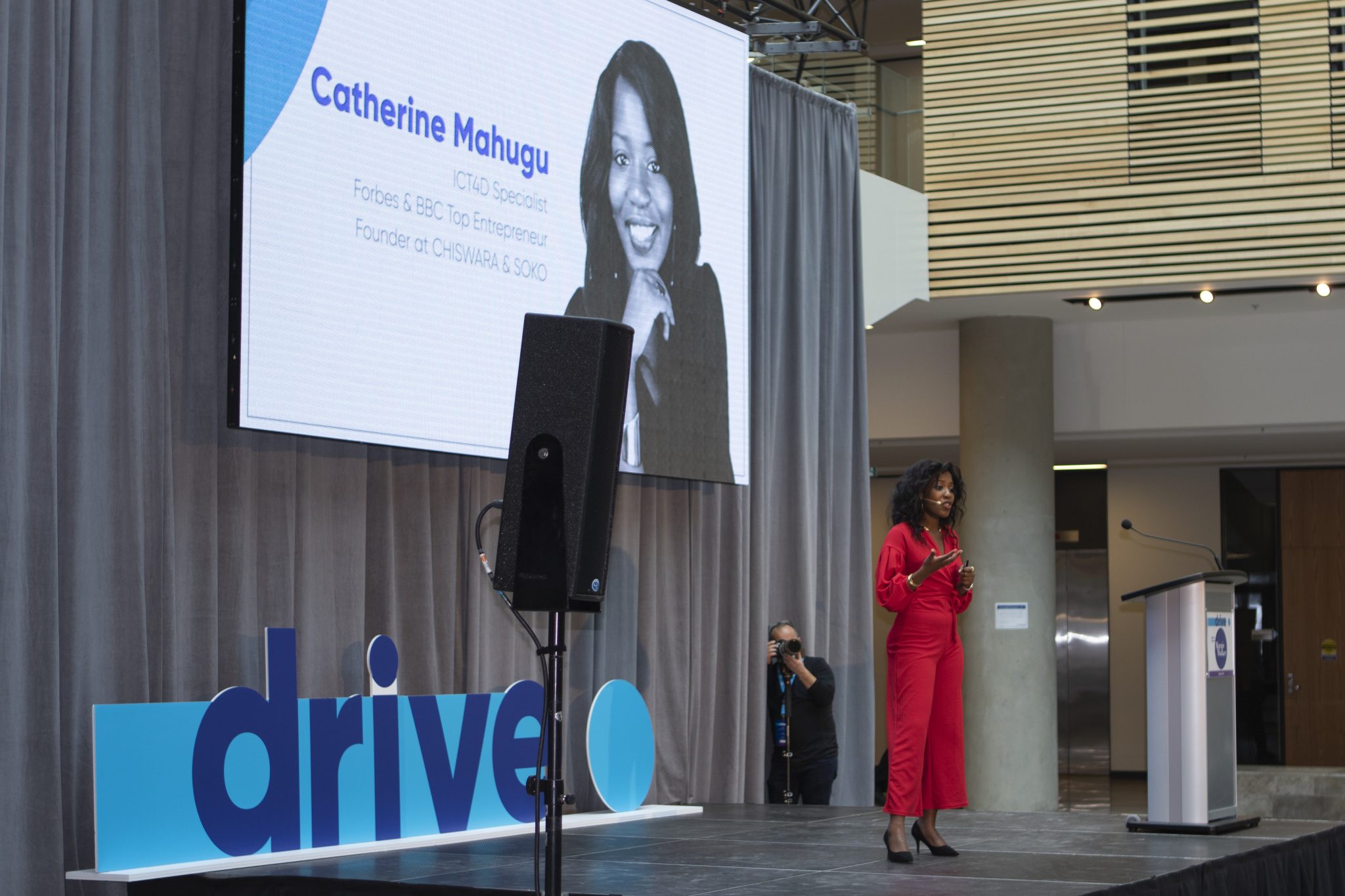Lazaridis Institute hosts inaugural DRIVE Conference over reading week


The Lazaridis School of Business and Economics, along with the Lazaridis Institute and the company Hockeystick, hosted the first ever DRIVE Conference at Lazaridis Hall from Wednesday, Feb. 20 to Friday, Feb. 22, 2019.
The conference focused on global scale-up ecosystems: companies that have increased their value by over 20 per cent in the last three years and are no longer considered a start-up company.
Kim Morouney, the managing director of the Lazaridis Institute and Raymond Luk, the founder and CEO of Hockeystick, co-chaired the conference and curated the events that happened during the three-day event.
“The dean of the Lazaridis School and I — I used to be the associate dean for international and for programs — and we have for a long time, wanted to have a conference — an international conference. We would like to do more partnering internationally with schools that are located in tech hubs around the world, so that is an idea we’ve had for a long time,” Morouney said.
“When I took over this job, it became looking at things like in order to put together a consortium of schools located around tech hubs. Let’s start with looking for other institutes who are global and who are looking at some of the same issues we are.”
DRIVE had attendees from all over the globe, including countries like Sweden, Ireland, South Korea, Kenya, France and Israel, who were all eager to get different global perspectives on what works and what does not in the world of scale-ups.
“Looking out into the audience and seeing people I’ve met from around the world, to see them get along with each other and network with each other, which is really the goal, was so rewarding,” Morouney said.
Kitchener-Waterloo is one of the most booming economies for start-ups in Canada, though the rate of start-up success versus scale-up success is a question that DRIVE aimed to answer, as it was referred to as an “everyone but Silicon Valley” problem.
The tech community located in the region is largely in part why the conference was held here, but the goal for DRIVE is to move globally to give access to other tech hubs to see how they operate.
“We don’t want to hold it in Waterloo every year. We had academics, researchers, government people, investors and tech CEOs come, but our goal is to build better connections to make those globally. So, we think it would run better if one year we had it in the United Kingdom, one we locate in South America, in Asia,” Morouney said.
“That way, we can build stronger connections. I don’t know if we’ll be able to turn it over to a global partner next year — maybe we’ll do it twice in Canada just to get a model that works well.”
The conference hosted many keynote speakers and panelists on topics such as ‘whether accelerators and incubators are beneficial or inhibitors of start-ups,’ ‘changing immigration policies in countries to bring in new technology talents,’ ‘women succeeding in technology positions’ — and even had an interactive session with the Minister of Taiwan, who answered questions about helping entrepreneurs in dealing with social and government issues.
Despite the success of the conference and the positive feedback from attendees to the co-chairs, there is still room for improvement when it comes to the next year and building for future successes.
“One thing we would change would be to get going a lot sooner; we did this really with very little time. Sponsorship is helpful because we actually tried to defray the costs for all of our international people — that is very expensive. We did have quite a few sponsors show up, but it’s important because we want people to come who may not have the money to come,” Morouney said.
DRIVE’s aim was to bring different global perspectives to fellow academics, CEOs and other who work in technologically driven industries, as one country may have the answer to a problem another country is currently facing.
Though some panelists and keynote speakers came from overseas, some speakers were Laurier’s own faculty, like Shohini Ghose, a professor in physics and computer science.
Overall, the DRIVE conference brought together professionals in many different sectors to try and achieve one overarching goal of helping others be successful.
Through asking questions, networking and learning from tech professionals with many years of experience, many attendees left the conference with new ideas to help their businesses succeed.
“Looking out into the audience and seeing people I’ve met from around the world, to see them get along with each other and network with each other, which is really the goal, was so rewarding,” Morouney said.
“Technology and humanity is where we have to go; it can’t be all technology and we can’t be luddites and say we don’t want to get into technology — and sometimes that fear is there, so you need that balance.”


